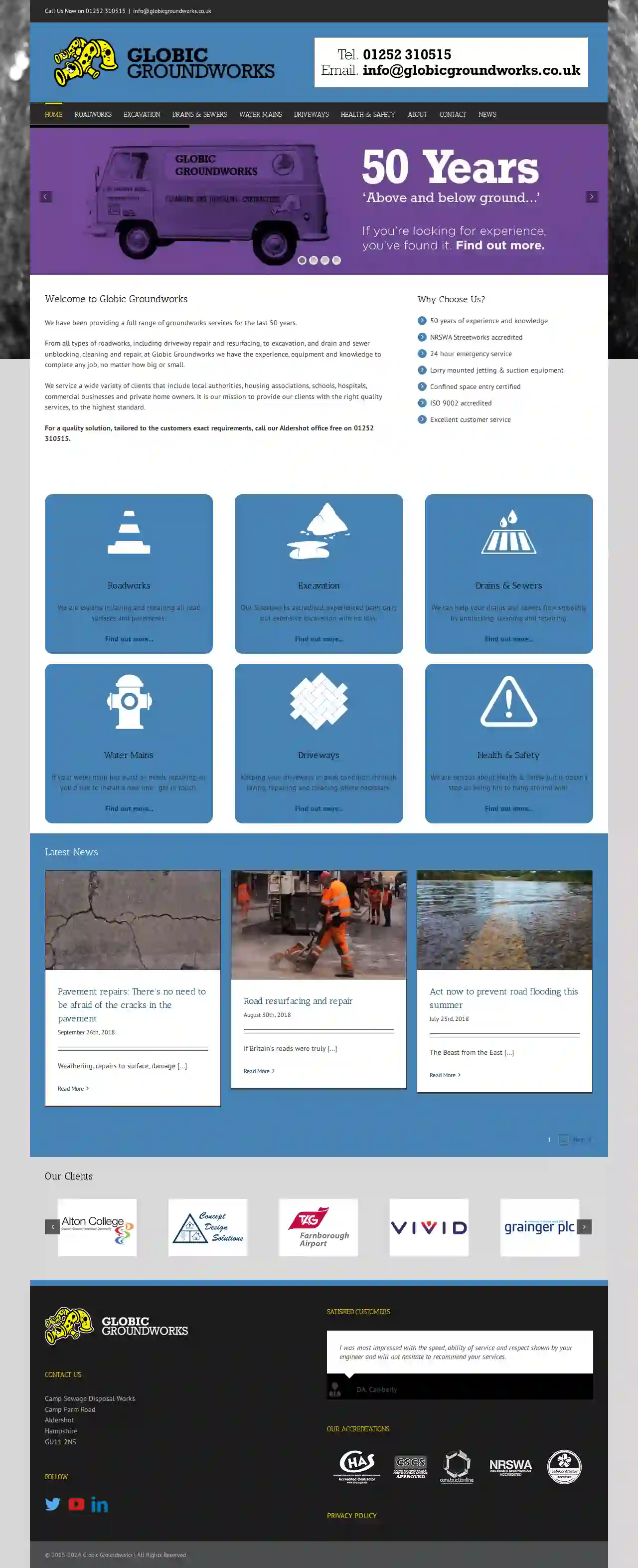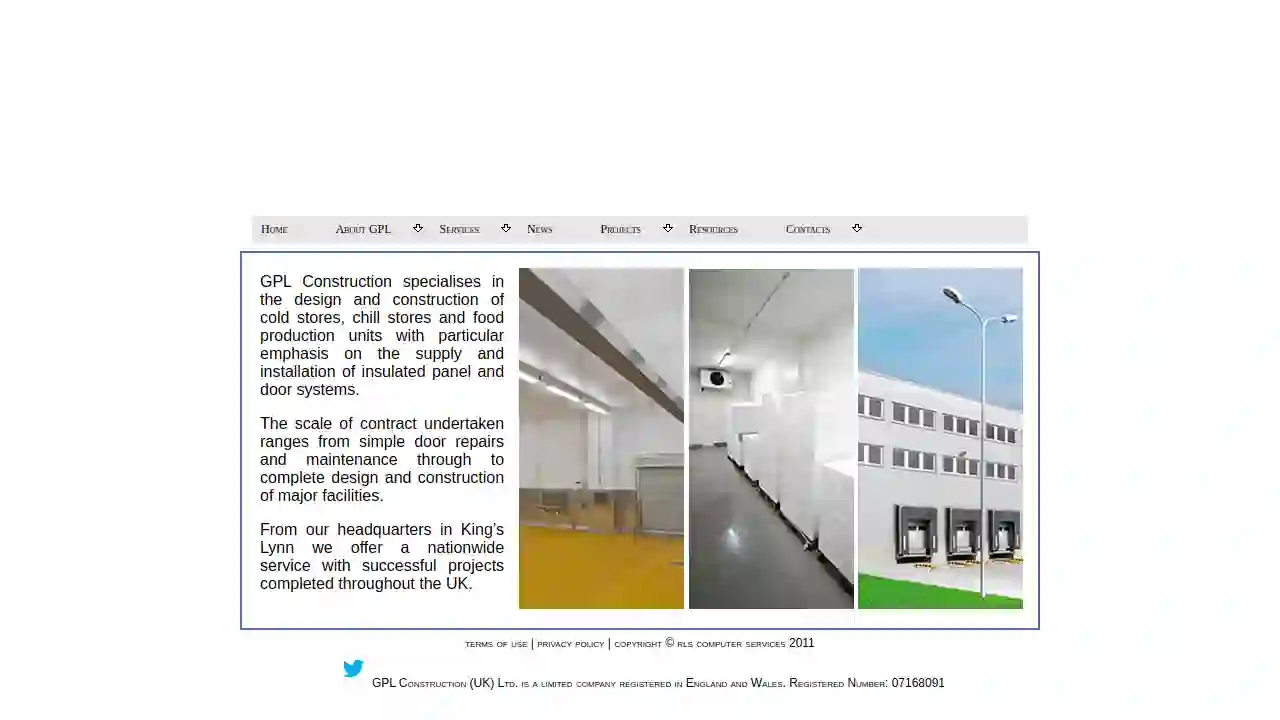Demolition Contractors Shrewsbury
Best Local Demolition Contractors in Shrewsbury
Receive 3 FREE Demolition Services quotes for your project today! Compare profiles, reviews, accreditations, portfolio, etc... and choose the best service.

Central Plant Hire
4.937 reviewsHolmbush Farm, Crawley Road, Holmbush Farm Crawley Road Faygate Horsham West Sussex, Horsham, RH12 4SE, GBCentral Plant Hire is a leading provider of plant and digger hire in West Sussex and Surrey. We offer a wide range of equipment to suit all your needs, from mini diggers to dumpers and attachments. We are committed to providing our customers with the highest quality equipment and service. Our team is experienced and knowledgeable, and we are always happy to answer your questions. We offer competitive rates and flexible hire options to suit your budget. We are proud to be a local business, and we are committed to supporting our community. We are a member of the Construction Industry Federation (CIF) and we are fully insured.
- Services
- Why Us?
- Accreditations
- Gallery
Get Quote
Globic Groundworks
1Camp Sewage Disposal Works, Camp Farm Road, Aldershot, GU11 2NS, GBWelcome to Globic Groundworks Globic Groundworks has been providing a comprehensive range of groundworks services for the past 50 years. From all types of roadworks, including driveway repair and resurfacing, to excavation, and drain and sewer unblocking, cleaning and repair, Globic Groundworks possesses the experience, equipment, and expertise to tackle any project, regardless of size. We cater to a diverse clientele, including local authorities, housing associations, schools, hospitals, commercial businesses, and private homeowners. Our unwavering commitment is to deliver high-quality services that meet the highest standards, exceeding our clients' expectations. For a tailored solution that precisely aligns with your specific requirements, contact our Aldershot office toll-free at 01252 310515.
- Services
- Why Us?
- Accreditations
- Testimonials
- Gallery
Get Quote
Pre-Construct Archaeology
4.29 reviewsThe Granary, Rectory Farm, Pampisford, Cambridgeshire, Cambridge, CB22 3EN, GBCelebrating 30 years of business Pre-Construct Archaeology PCA is a well-established independent archaeological company specialising in high quality, client focused heritage initiatives. READ MORE ABOUT PCA Discover our services PCA provides the full range of archaeological and built heritage services in all public and private sectors, such as property development, transport and renewable energy. We are able to undertake work anywhere in the UK, including contaminated sites. See our projects Get in touch With offices in Cambridge, Durham, London, Newark, Norwich, Warwick, and Winchester, we can help with your heritage requirements. Get in touch with Pre-Construct Archaeology in your local area or contact our general enquiries for advice.
- Services
- Why Us?
- Testimonials
- Gallery
Get Quote
Clacton Pier
4.3Clacton Pier, 1 North Sea, Clacton-on-Sea, CO15 1QX, GBEXPLORE THE BIGGEST PLEASURE PIER IN EUROPE Clacton Pier is a vibrant and exciting destination for families and thrill-seekers alike. With a wide range of attractions, rides, and entertainment options, there's something for everyone to enjoy. From the exhilarating rides to the immersive Jurassic Pier experience, you're guaranteed an unforgettable day out. SMILES ALL THE WAY. SO MANY WAYS TO PLAY! Thrilling rides, arcade, golf and immersive attractions, every visit promises unforgettable memories. Don’t miss out on the excitement! Purchase your Daily Tickets, Big Day Out Band, Annual Passes or load up a Fun Card today for endless thrills and unforgettable fun at Clacton Pier.
- Services
- Why Us?
- Gallery
Get Quote
Ernest Doe Power
4.276 reviewsErnest Doe & Sons Limited, Ulting, Maldon, CM9 6QH, GBAbout Ernest Doe Ernest Doe is a family-owned business that has been serving the agricultural, construction, and groundcare industries for over 100 years. We are committed to providing our customers with the highest quality products and services, and we are proud of our reputation for excellence. Our History Ernest Doe was founded in 1919 by Ernest Doe, a man with a passion for engineering and a vision for providing quality machinery to the local farming community. Over the years, the business has grown and expanded, but our commitment to our customers and our values has remained the same. Our Mission Our mission is to provide our customers with the best possible service and support, and to help them achieve their goals. We are committed to providing our customers with the highest quality products and services, and we are proud of our reputation for excellence. Our Team Our team is made up of experienced and knowledgeable professionals who are dedicated to providing our customers with the best possible service. We are committed to providing our customers with the highest quality products and services, and we are proud of our reputation for excellence.
- Services
- Why Us?
- Our Team
- Gallery
Get Quote
G P L Construction (UK) Ltd
51 reviews18 Hodgson Way, Hardwick Narrows, Kings Lynn, Norfolk, King's Lynn, PE30 4WR, GBGPL Construction: Your Trusted Partner for Cold Storage Solutions GPL Construction (UK) Ltd is a family-run business with over 22 years of experience in the design and construction of cold stores, chill stores, and food production units. We are firmly established as one of the UK's leading performers in our market, offering a nationwide service with a commitment to delivering quality projects on time, within budget, and with minimal disruption to our clients' existing operations. Our team of experienced, multi-skilled operatives share a common vision and commitment to delivering the highest standards. We pride ourselves on our exceptional customer service, reliability, and quality of work, ensuring that each project receives the same high level of attention, whether it's a simple repair or a large-scale design and build project. From our headquarters in King's Lynn, Norfolk, we have successfully completed projects throughout the UK, ranging from simple door repairs and maintenance to the complete design and construction of major facilities. We specialize in the supply and installation of insulated panel and door systems, and we are well-placed to select the best materials for individual contracts without being tied to a specific product range. Our commitment to continuous improvement is reflected in our regular review of health and safety policies and our ongoing training programs. We are an approved contractor under the SafeContractor Scheme, which assesses the health and safety competency of suppliers and their service providers. This accreditation is recognized by many large organizations as their primary means of selecting contractors. We are a progressive company and welcome the opportunity to talk to people who can offer GPL their wealth of experience, are well qualified, and pride themselves on having good standards of work.
- Services
- Why Us?
- Accreditations
- Our Team
- Gallery
Get Quote
Taylormade Building Services Teddington
57 reviews20 Upper Ham Road, Richmond, TW10 5LA, GBAt TaylorMade, we cover all aspects of Plumbing, Heating, and Building Services. Our charging system is transparent with competitive rates which are ensured by monitoring our competitors on a weekly basis. Our trades people are all highly-experienced and at the top of their trade to give you complete peace of mind. Our established reputation gives added assurance that you are using one of the most reliable and respected names in the business.
- Services
- Why Us?
- Testimonials
- Gallery
Get Quote
London & City Contracts Ltd
1Unit 1, Wanstead, London, E11 2LW, GBBuilding Projects and Relationships since 1998. LCCL. With you all the way Welcome to London & City Contracts London's Specialist Building and Refurbishment Company Providing Quality Services and Value To Private and Commercial Clients since 2002 Your Challenge - Our Solution L&C Contracts are an established Property Refurbishment company providing the highest levels of quality, service and value to private and commercial clients in London and the South of England. Our Mission Our mission at L&C Contracts is to provide our clients with exceptional quality services, finished to the highest possible standards. You win trust with hard work and customer satisfaction. The high level of repeat business that we gain is a true testimonial to the standards we maintain and the promises that we keep. New Build& Refurbishments Specialist Design We work with some of the most highly regarded Architects, designers and specialists to complete high quality new build and refurbishment projects. Our Approach Our approach is based on listening to our clients. We will help steer, develop and support your drive to realise your vision. Delivery We will deliver your project no matter how complex on time and within budget to the highest possible standards. Our Motto 'Your Challenge - Our Solution'
- Services
- Why Us?
- Gallery
Get Quote
B Harris Surfacing Ltd
11 reviews2 Bridge Cottages, Shamblehurst Lane North, Hedge End, Southampton, SO32 2BY, GBAbout us We at B. Harris Surfacing are proud to be the number one contractor for domestic and commercial clients who require professional surfacing, civil, and road marking services. Expertise - Reliable service delivered by specialists Quality - Ensuring stunning, long-lasting results Professionalism - Delivering impeccable service to all clients Trusted - Established since 1956
- Services
- Why Us?
- Gallery
Get Quote
Metro Rod (Glasgow)
3.915 reviewsGlasgow, GBMetro Rod Scotland: Your Trusted Drainage Experts Metro Rod Scotland is your one-stop shop for all your drainage needs across the beautiful country of Scotland. From simple drain unblocking to complex pump maintenance, our team of local drainage engineers is here to help you 24/7/365. We understand the importance of a reliable and efficient drainage system, whether it's for your home or business. That's why we pride ourselves on providing a professional service from start to finish, ensuring minimal disruption to your daily life. Our team is equipped with the latest technology and expertise to handle any drainage challenge, no matter how big or small. We offer a wide range of services, including: • CCTV drain surveys • Drain mapping • Drain repairs • Drain unblocking • Gutter clearance • Pipelining & renovation • Pre-planned maintenance • Pump maintenance and repairs • Robotic cutting • Saniflow repair and replacement • Septic tank emptying • Tanker services including high-pressure water jetting, flood water extraction, and grease trap emptying We are committed to providing a fast, professional, and complete drainage service that minimizes disruption to your business and home. Our unrivalled response time and first-time fix rate mean you can rely on us to get the job done right, the first time. Whether you're in Edinburgh, Glasgow, Aberdeen, the Scottish Highlands and Islands, or anywhere in between, Metro Rod Scotland is your trusted partner for all your drainage needs.
- Services
- Why Us?
- Gallery
Get Quote
Over 3,630+ Excavation Contractors on our platform
Our excavation providers operate in Shrewsbury & surrounding areas!
ExcavationHQ has curated and vetted Top Excavation Businesses in and around Shrewsbury. Find the most trustworthy contractor today.
Frequently Asked Questions About Demolition Contractors
- Enclosure: Sealing off the asbestos-containing material to prevent fiber release.
- Encapsulation: Coating the asbestos-containing material with a sealant to bind the fibers.
- Removal: Carefully removing the asbestos-containing material and disposing of it safely.
- Clear the Site: Remove all furniture, appliances, personal belongings, and any valuable items from the structure.
- Secure the Perimeter: Fence off the demolition area to prevent unauthorized access and protect surrounding property.
- Disconnect Utilities: Arrange for the disconnection of electricity, gas, water, and other utilities servicing the building.
- Hazardous Material Abatement: If asbestos, lead paint, or other hazardous materials are present, have them professionally removed before demolition begins.
- Notify Neighbors: Inform your neighbors about the demolition schedule to minimize disruptions and address any concerns.
- Obtain Permits: Ensure all necessary demolition permits are in place before starting work.
What is a demolition bond?
How long does a demolition project take?
What are the different methods of asbestos abatement?
How do I prepare my property for demolition?
What is a demolition bond?
How long does a demolition project take?
What are the different methods of asbestos abatement?
- Enclosure: Sealing off the asbestos-containing material to prevent fiber release.
- Encapsulation: Coating the asbestos-containing material with a sealant to bind the fibers.
- Removal: Carefully removing the asbestos-containing material and disposing of it safely.
How do I prepare my property for demolition?
- Clear the Site: Remove all furniture, appliances, personal belongings, and any valuable items from the structure.
- Secure the Perimeter: Fence off the demolition area to prevent unauthorized access and protect surrounding property.
- Disconnect Utilities: Arrange for the disconnection of electricity, gas, water, and other utilities servicing the building.
- Hazardous Material Abatement: If asbestos, lead paint, or other hazardous materials are present, have them professionally removed before demolition begins.
- Notify Neighbors: Inform your neighbors about the demolition schedule to minimize disruptions and address any concerns.
- Obtain Permits: Ensure all necessary demolition permits are in place before starting work.